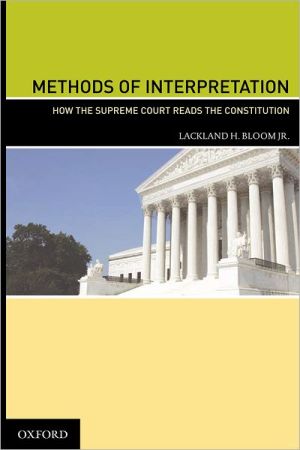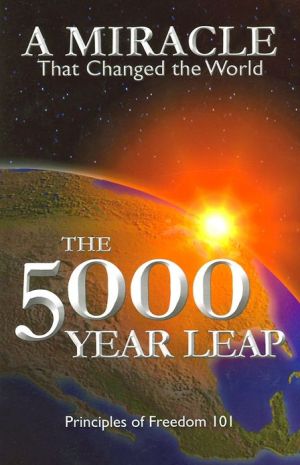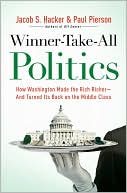Methods of Interpretation: How the Supreme Court Reads the Constitution
Methods of Interpretation: How the Supreme Court Reads the Constitution examines the various methodologies the Supreme Court, and individual justices, have employed throughout history when interpreting the Constitution. Rather than attempting to set forth an overall theory of constitutional interpretation or plunge into the never ending scholarly debate over interpretative theory, Lackland H. Bloom focuses exclusively on what the Court and individual justices have done and said about...
Search in google:
Methods of Interpretation: How the Supreme Court Reads the Constitution examines the various methodologies the Supreme Court, and individual justices, have employed throughout history when interpreting the Constitution. Rather than attempting to set forth an overall theory of constitutional interpretation or plunge into the never ending scholarly debate over interpretative theory, Lackland H. Bloom focuses exclusively on what the Court and individual justices have done and said about constitutional interpretation in the course of deciding constitutional cases. He identifies many of the best, and a few of the worst, examples of particular interpretative methodologies, as well as the best examples of explicit discussions of constitutional interpretation by the Court and individual justices. Professor Bloom pays particular focus on the Supreme Court's approaches to constitutional interpretation since it is the Court that sets the standards. Although commentators may have the final word on what constitutional interpretation should be, he argues that the Court essentially has the final word on what it actually is.
Ch. 1 Textualism and Its Canons 1Ch. 2 Intratextualism and Textual Purpose 31Ch. 3 Original Understanding: Preconstitutional Sources and the Drafting and Ratification Process 57Ch. 4 Original Understanding: Contemporaneous Understanding and Interpretive Issues 93Ch. 5 Tradition and Practice 133Ch. 6 Structural Reasoning 169Ch. 7 Precedent 205Ch. 8 Deriving Doctrine 257Ch. 9 Shaping, Clarifying, and Changing Doctrine 307Ch. 10 Consequential Reasoning 351Ch. 11 Ethical Argument 371Ch. 12 Rhetoric in Constitutional Interpretation 399Ch. 13 Synthesis 419Notes 445Table of Cases 541Index 553








